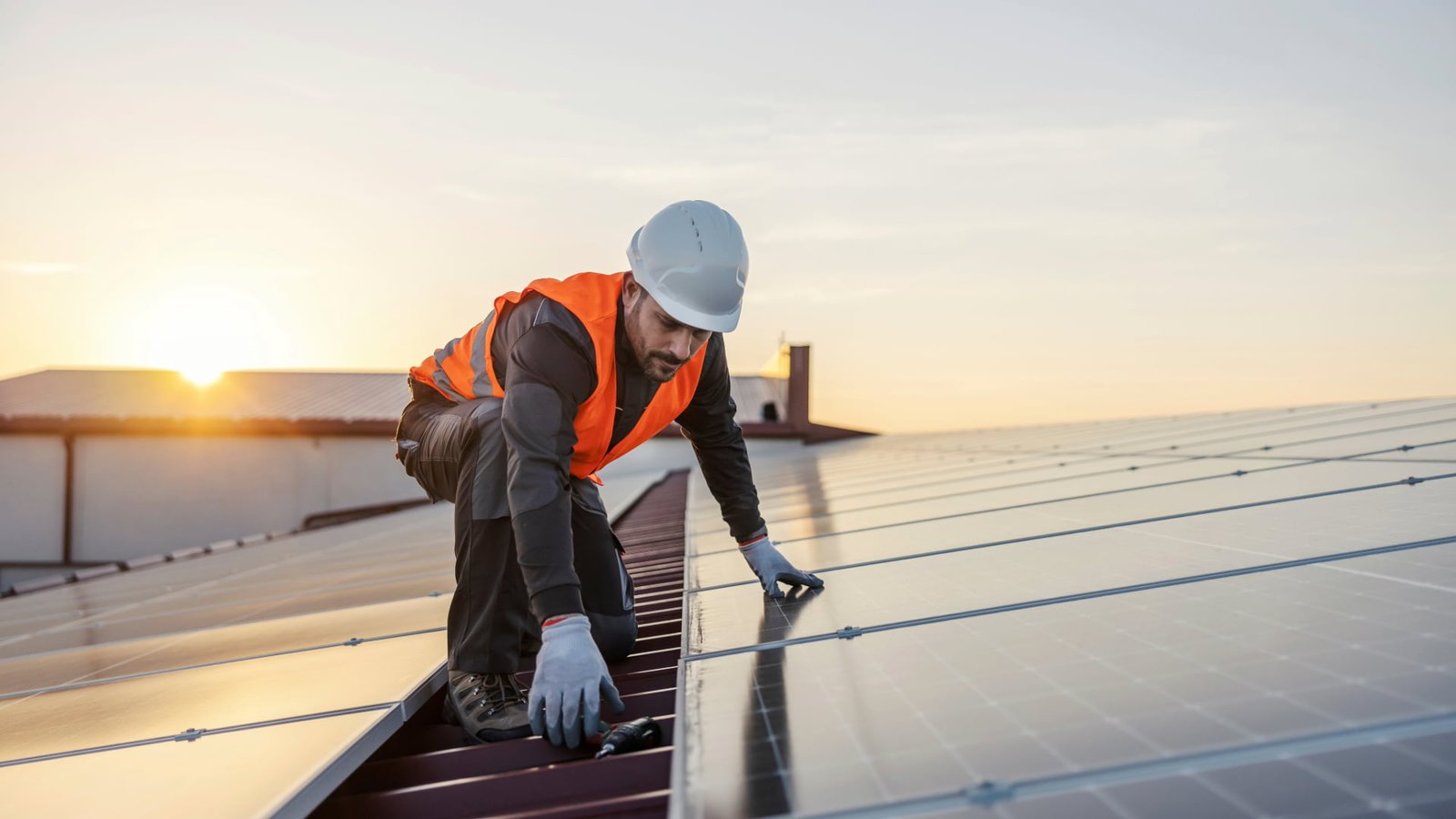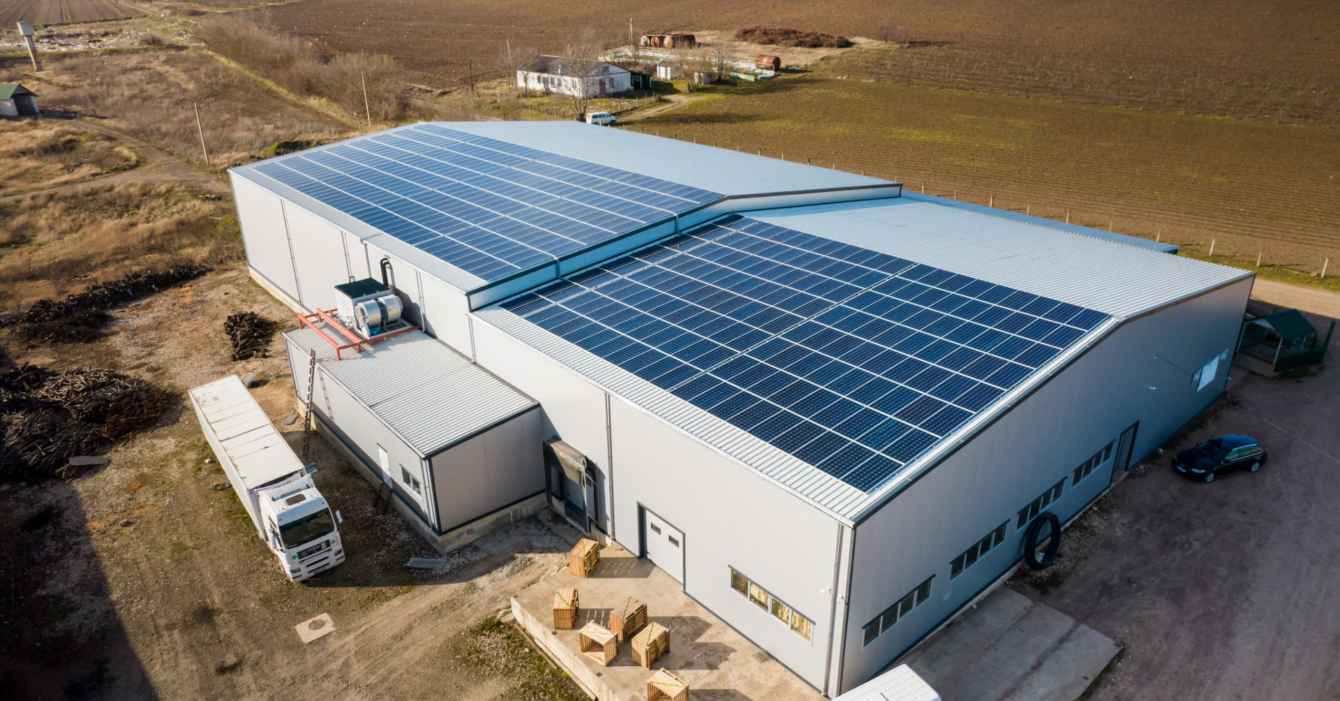Key industries in Saudi Arabia, such as retail, manufacturing, and logistics, rely heavily on warehouses to store goods, manage inventories, and facilitate distribution. This reliance makes energy efficiency in warehouses a top concern for many players who aim to reduce operational costs and enhance sustainability. Fortunately, GCC countries like Saudi Arabia are renowned for their abundant sunshine, making the region ideal for solar energy utilization. Saudi Arabia’s vast deserts and relentless sunlight stand out as prime candidates for harnessing solar power. Additionally, the country has been making significant strides in diversifying its energy portfolio and reducing its dependence on oil, positioning itself as a leader in renewable energy within the region.
The Rise of Solar Power as an Energy Source
GCC countries, including Saudi Arabia, are making bold strides in renewable energy initiatives, with solar power leading the charge. The region’s unparalleled solar potential is being harnessed to drive a transformative shift towards sustainable energy. Central to this movement is Saudi Arabia’s Vision 2030, a plan to diversify the economy and reduce oil dependency, with renewable energy as a cornerstone. The National Renewable Energy Program (NREP) aims for 58.7 GW of renewable capacity by 2030, with a significant portion from solar power, positioning Saudi Arabia as a global leader in renewable energy and a trailblazer in the clean energy sector.
How to Maximize Energy Efficiency in Warehouses with Solar Power
Warehouses, with their expansive flat rooftops, present an ideal platform for solar panel installation, offering a practical solution to harness renewable energy. These structures typically have large, unobstructed roof spaces, perfectly suited for accommodating extensive solar arrays and maximizing energy capture and efficiency.
The advantages are clear. Electricity consumption in warehouses is high due to equipment operation, lighting, and cooling. By integrating solar panels, these facilities can significantly reduce their reliance on the traditional power grid, leading to considerable cost savings.
Envision logistics hubs where operations are powered by the sunlight that bathes their rooftops each day. Manufacturing plants could run their energy-intensive machinery using renewable energy, cutting operational costs and reducing their carbon footprint. Agricultural storage facilities could utilize solar power to keep produce fresh, enhancing sustainability while lowering expenses.
By transforming warehouse rooftops into energy-efficient platforms, businesses can make a smart economic decision that also promotes environmental sustainability. This integration of solar panels not only cuts energy costs but also positions warehouses as key players in the transition to renewable energy, setting a practical example for industries worldwide.
Operational and Economic Benefits of Energy Efficiency in Warehouses
- Cost Savings: One of the most compelling advantages of installing solar panels on warehouses is the reduction in electricity bills. Lower operating costs can result from a warehouse using solar energy to offset a sizable portion of its energy use. In a region with high electricity tariffs, such as the GCC, this can translate into substantial savings.
- Energy Independence: Solar panels can provide warehouses with a degree of energy independence. This is particularly beneficial in remote areas where grid connectivity is unreliable or non-existent. By generating their own power, warehouses can ensure uninterrupted operations.
- Environmental Impact: Utilizing solar energy reduces carbon emissions, aligning with global sustainability goals. For companies looking to enhance their corporate social responsibility (CSR) profiles, investing in solar panels is a tangible commitment to environmental stewardship.
- Increased Property Value: Properties equipped with renewable energy solutions like solar panels often see an increase in market value. For warehouse owners, this can mean higher rental rates and improved resale value.
Case Studies of Energy Efficiency in Warehouses in Saudi Arabia

Several companies in Saudi Arabia have successfully integrated solar power into their warehouse operations, demonstrating impressive improvements in energy efficiency. These case studies highlight how solar panels have reduced operational costs, enhanced sustainability, and supported the Kingdom’s vision for renewable energy.
- Abdullah Al-Othaim Markets: Abdullah Al-Othaim Markets, one of Saudi Arabia’s leading retail companies, has successfully implemented solar panels on several of its warehouses. By utilizing solar energy, the company has significantly reduced its electricity consumption and operational costs. The initiative aligns with Al-Othaim’s commitment to sustainability and environmental stewardship.
- King Abdullah Economic City (KAEC): King Abdullah Economic City, a significant development project in Saudi Arabia, has embraced solar energy in its logistic and warehousing facilities. The city has installed solar panels on the rooftops of warehouses to reduce energy costs and minimize carbon footprint. This move not only supports the city’s sustainability goals but also enhances the operational efficiency of its logistics sector.
- Saudi Aramco’s Uthmaniyah Warehouse: Saudi Aramco, the world’s leading energy producer, has integrated solar panels into its Uthmaniyah Warehouse. This project is part of Aramco’s broader strategy to incorporate renewable energy into its operations. The solar installation has helped the company achieve significant energy savings and reduce greenhouse gas emissions. This success story highlights the role that even traditional energy companies can play in advancing renewable energy solutions.
- Red Sea Development Company: The Red Sea Development Company, known for its ambitious tourism projects, has integrated solar panels into its warehouse facilities to support its sustainability initiatives. Located along the pristine coastlines of the Red Sea, this initiative not only highlights the potential of renewable energy in large-scale developments but also underscores the company’s dedication to minimizing its environmental impact.
Conclusion
The integration of solar panels in warehouses across the GCC, particularly in Saudi Arabia, represents a significant advancement in energy efficiency. This synergy offers a pathway to cost savings, energy independence, and environmental sustainability. As the region continues to embrace renewable energy, the integration of solar panels on warehouse rooftops will undoubtedly play a crucial role in shaping a greener, more efficient future.

